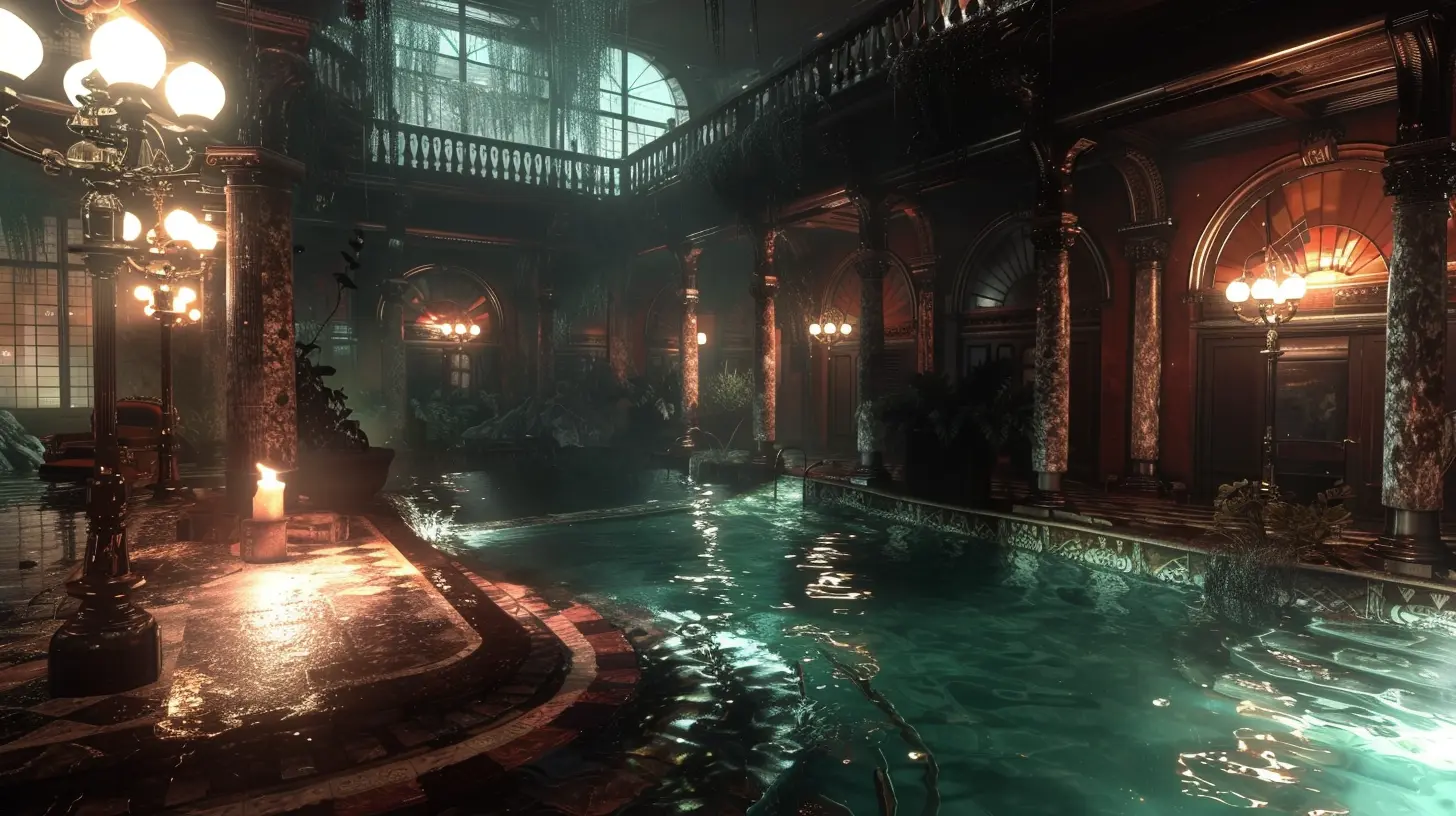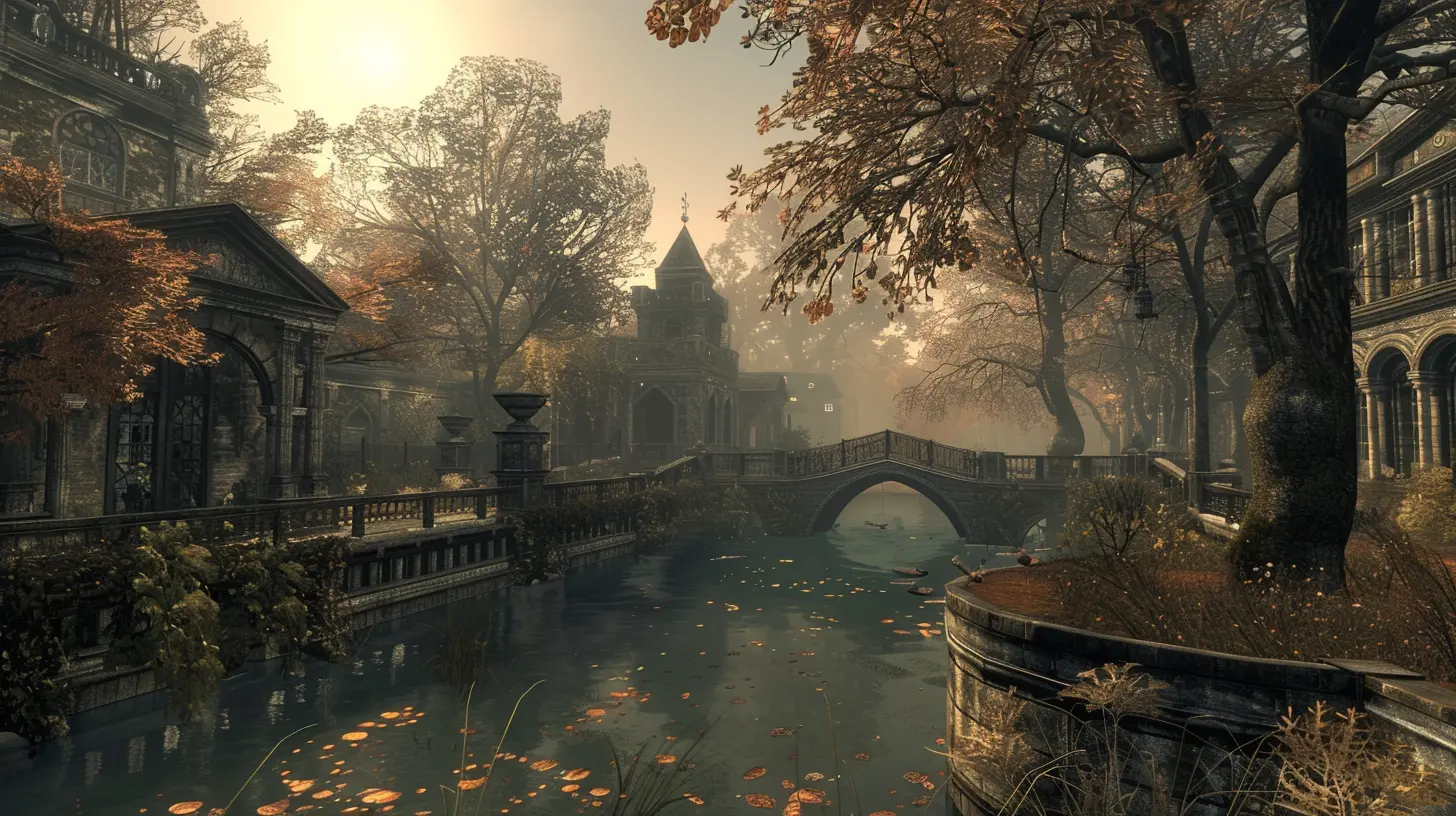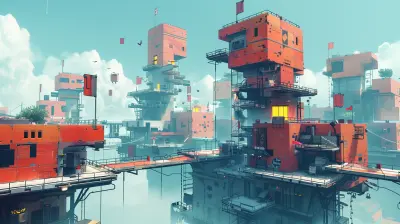Are DLCs Testing Grounds for New Game Ideas?
7 June 2025
Downloadable Content — or DLCs as we all know them — started out as simple add-ons, like a few new maps or fresh outfits. But fast-forward a few years, and now? They're practically mini-games or even full-blown expansions. But here’s the big question bouncing around the gaming community: Are DLCs testing grounds for new game ideas?
Let’s dive into this headfirst, controller in hand, and figure out what’s really going on behind the scenes.
What Exactly are DLCs?
Before we get too deep, let’s make sure we’re on the same page.DLCs (Downloadable Content) are additional pieces of content that extend the life of a game after its original release. These can be anything from weapons, characters, and missions, all the way up to massive, game-changing expansions.
DLCs come in many flavors:
- Cosmetic DLCs (skins, outfits, etc.)
- Story-based expansions
- New gameplay modes
- Quality of life enhancements
- Entirely new maps or worlds
But here’s where it gets interesting: As games evolve, DLCs are starting to look a lot less like “extras” and a lot more like experimental playgrounds for developers.
The Rise of Experimental DLCs
Think about it. Why would a studio throw a bold, risky idea into a full $60 game and hope for the best, when they can test it light and fast through DLC?DLCs offer a sweet middle ground: not too risky, not too small, just the right space for bold innovations.
Real Talk: Why Developers Love This Approach
- Lower Risk: If a DLC flops, it doesn’t hurt as much as a full game failure.- Fan Feedback Loop: Developers get real-time feedback on what’s working.
- Shorter Dev Time: It’s quicker to whip up a DLC than a new IP.
- Room to Experiment: Studios can test out mechanics, stories, settings, or characters.
It’s like trying out a new recipe on your friends before throwing it on the restaurant menu.
Iconic DLCs That Pushed the Envelope
Let’s roll through a few examples — DLCs that definitely felt like devs were stretching their creative muscles.🔥 Blood Dragon – Far Cry 3
Ubisoft went full neon-retro-cyberpunk with this one. Totally different style from the serious tone of Far Cry 3.- Same engine, wildly different flavor.
- Laser dinosaurs? Synth soundtrack? Pure creative freedom.
- Fans loved it, and that bold flair inspired later Far Cry entries.
🧟♂️ Undead Nightmare – Red Dead Redemption
Rockstar took their gritty wild west and injected it with zombie horror.- Completely rewrote the core tone of the game.
- Risky? Yep. Fun? Absolutely.
- It proved Rockstar could push boundaries while keeping core mechanics intact.
🚀 Minerva’s Den – BioShock 2
Here’s a narrative-heavy DLC that felt like a full spin-off.- Focused plot, fresh mechanics, new characters.
- It was so well-loved, some fans say it surpassed the main game.
These weren’t just “add-ons.” They were full-on test drives for concepts that could totally hold their own.
DLCs vs. New IPs: A Strategic Playground
Launching a new IP (Intellectual Property) is nerve-wracking for developers. It’s expensive, time-consuming, and filled with uncertainty.DLCs offer the perfect platform to quietly test new universes or gameplay concepts without betting the entire farm.
Think About It Like This:
Let’s say you’ve got a killer idea. Maybe it’s weird. Maybe it’s wildly different. Maybe it doesn’t quite fit your current game’s tone. So, what do you do?You bundle it up as a DLC. Drop it into the wild. Wait and watch.
- Do players engage?
- Are they sharing it?
- Is there demand for more?
If the answer’s a yes, well — bingo. You’ve got your next big game idea already pre-tested and fan-approved.
The Feedback Loop: Players Shape Future Games
Here’s where it gets really cool. DLCs are like a two-way conversation between you (the player) and the devs.When you hop into a boundary-pushing DLC and tweet about it, stream it, or leave feedback on Reddit, you're sending a message.
Devs are listening. And when they notice what clicks, they take that data and run with it.
A Couple of Real-World Examples:
- Assassin’s Creed introduced naval mechanics in AC III, expanded them in Black Flag, and by then players were straight-up hooked. The naval idea started as a side feature and ended up being a franchise staple.- The Sims often tests new mechanics via "Game Packs" before they go into the next major base game update. Players' reactions to these packs shape what becomes a permanent feature.
DLCs basically become a crowdsourced idea lab.
Do Gamers Mind Being the Guinea Pigs?
Alright, let’s call it out. If DLCs are testing grounds, that kinda makes us the lab rats, right?It’s a fair point. But most players don’t seem to mind — as long as:
- The DLCs are fun and worth the price.
- Changes don’t feel like cash-grabs.
- Experiments add real value.
Gamers are super smart. We know when we’re being milked and when developers are honestly trying something new. The key? Transparency and quality.
The Double-Edged Sword of Experimental DLC
Of course, it’s not all sunshine and expansion packs. Sometimes using DLCs as creative sandboxes can backfire.Here’s What Can Go Wrong:
- Lack of Cohesion: If the DLC feels too detached, it breaks immersion.- Unbalanced Gameplay: Introducing new mechanics without enough testing can mess with the core balance.
- Paywall Controversies: Players might feel held hostage if major innovation is locked behind a paywall.
So, while testing new ideas is great, devs need to read the room. A bad DLC can hurt more than help.
Are Players Ready for This Future?
Let’s face it — games aren’t static anymore. We’re living in the age of constantly evolving titles. Think live-service models, seasonal updates, and yes, experimental DLCs.And honestly? Most players are totally here for it.
We want fresh content. We want new challenges. And we love when devs push boundaries — as long as it doesn’t feel forced or greedy.
If anything, DLCs keep our favorite games alive and kicking long after launch. They’re like sequels without the wait.
So… Are DLCs Testing Grounds for New Game Ideas?
You bet they are.And that's not a bad thing.
If anything, it’s kind of genius. DLCs let developers:
- Take creative risks
- Gauge player interest
- Refine mechanics and narratives
- Build hype for future games
From a player’s perspective, we get more bang for our buck. We get to try out experimental content, see where a franchise might be heading, and even play a part in shaping that direction.
The Bottom Line
DLCs have evolved far beyond simple add-ons. They’ve become innovation hubs, community feedback tools, and soft launches for bold ideas.So next time you download a DLC, think of it like this:
You’re not just extending the game — you're stepping into the blueprint of what could very well be gaming’s next big thing.
Now that’s power.
all images in this post were generated using AI tools
Category:
Downloadable ContentAuthor:

Leandro Banks
Discussion
rate this article
2 comments
Kennedy Sawyer
Intriguing perspective! It makes me wonder—could DLCs serve as a real-time feedback loop for developers? If players love new concepts, might they become full-fledged games? What examples have you seen that support or challenge this idea?
June 11, 2025 at 3:29 AM

Leandro Banks
Absolutely! DLCs can act as testing grounds for new concepts. For example, *Left 4 Dead* introduced new gameplay mechanics in its DLCs, which later influenced *Evolve*. Similarly, elements from *The Witcher 3's* expansions were incorporated into *Cyberpunk 2077*. This feedback loop benefits both developers and players.
Henrietta Powell
DLCs can innovate gameplay; worth exploring!
June 7, 2025 at 2:42 AM

Leandro Banks
Absolutely! DLCs often serve as a sandbox for developers to experiment with new mechanics and concepts, making them valuable for innovation in gaming.


